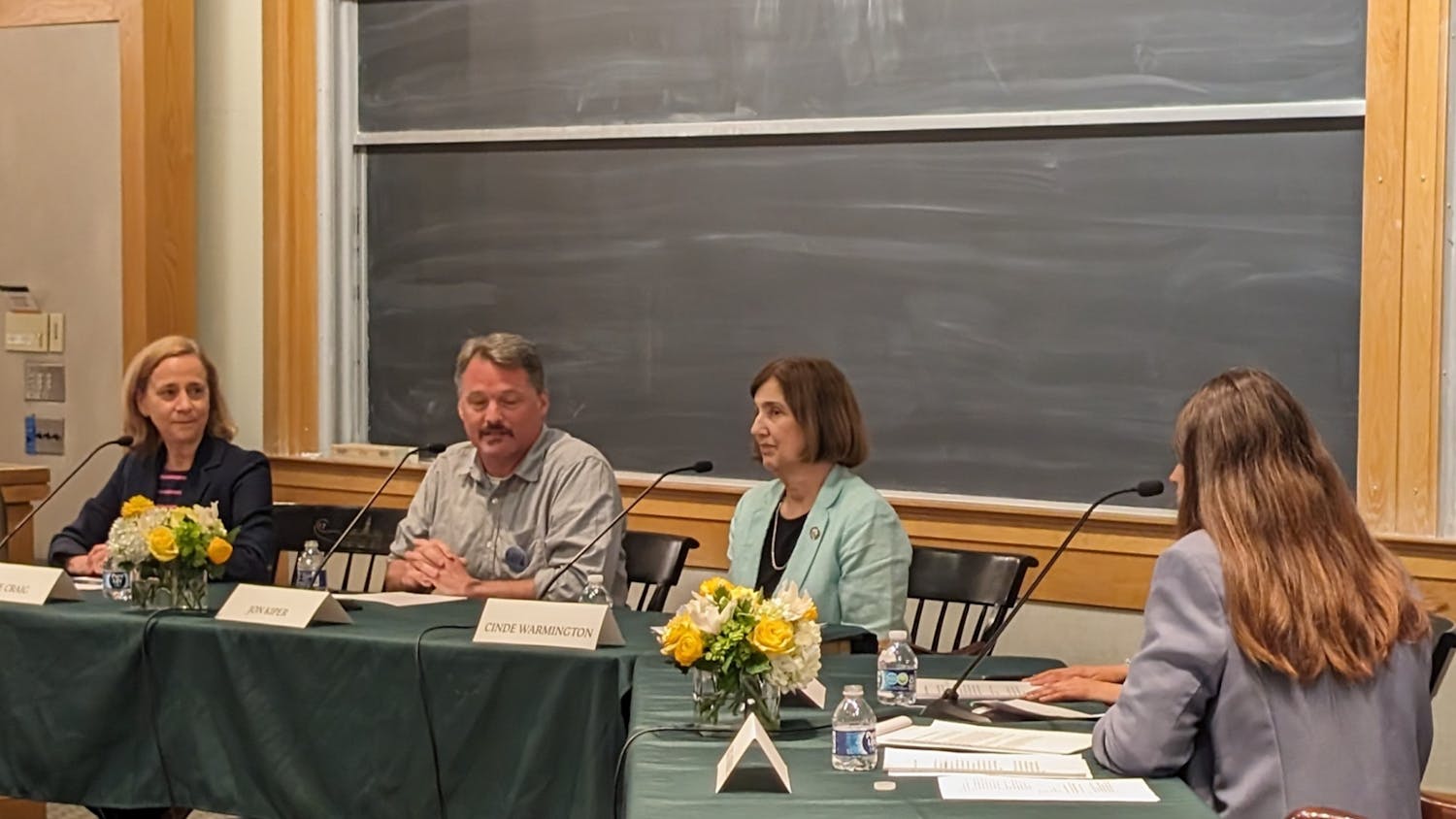Before describing his experience helping those fleeing the Afghan civil war in the mid-1980s last night, Jeral Ahtone DMS '75 related his innovative method for medically examing refugees.
Under time and resource constrictions as an immigrations medical officer, Ahtone stopped the escalators at a Washington immigration checkpoint to identify ailing refugees entering the United States, forcing them to climb the stairs.
"The ones that didn't make it, we picked out," Ahtone said.
Managing the heath situation of Afghan refugees in Pakistan, though, proved a bit more complex for Ahtone, who worked for the United Nations High Commissioners for Disease in 1985-86.
Many logistical issues unusual in developed nations undermined Ahtone and his colleagues' efforts to serve 1.5 million refugees, including the generally easily alleviated problem of equipment failures.
"We could get money for tuberculosis prevention, but nobody would give us money for maintenance," Ahtone said. "It was easier to get a new truck than to repair one."
Breaks in the "cold chain" -- the refrigerated path medical supplies take before reaching a patient -- often jeopardized vaccine virility, the efficacy of which is lost when exposed to heat.
Ahtone also found poor sanitation to be a major hindrance to good health. Holes dug to dispose of waste were prone to leaks that contaminated the groundwater, and Ahtone believed this was the single greatest source of disease for the refugees.
Based in Islamabad, Pakistan, the UNHCD provided many basic medical services stemming from clinics built in nearby and remote refugee camps.
Difficulties in training medical personnel to man these clinics forced Ahtone to examine techniques used by experienced organizations in the area. One such organization, the Saudi Red Crescent, found that unless personnel were retrained every three weeks, tuberculosis was treated ineffectively.
Ahtone also spoke at length on his experience working with the Center for Disease Control in Washington and Arizona. One of Ahtone's duties in Washington was to investigate deaths at sea before a ship's return to port.
"If a guy had a six inch gash on his head, I'd tell them its not contagious," Ahtone said.
Ahtone published frequently with the CDC, including a paper written about dentist-to-patient hepatitis transmission.
"When I presented the paper to the American Dental Association, I had a guy scream at me 'How do I work in someone's mouth wearing gloves?'" Ahtone said.
While dentists might be uncomfortable with gloves, female Afghan refugees were extremely reluctant to be examined by male medical personnel, leading to females playing an instrumental role in treatment.
The UNHCD also attempted to instill family planning practices among Afghan women, principally to space out childbirth.



